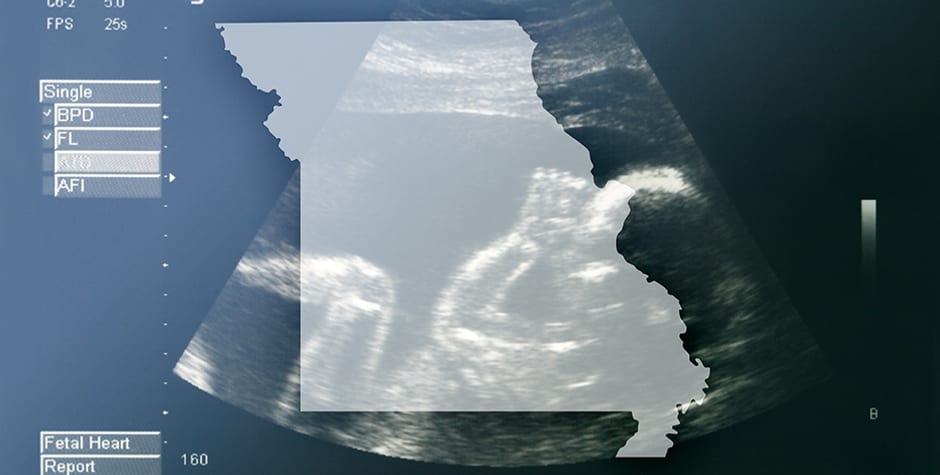ACLJ Continues Hammering Pro-Abortion Missouri Ballot Initiatives in Appeal
The ACLJ has filed a second amicus brief blasting, as “grossly biased and euphemistic,” a half-dozen ballot initiatives that seek to enshrine in the Missouri Constitution a right to kill babies before birth. Together with SBA Pro-Life America, the ACLJ filed the brief in Fitz-James v. Ashcroft, now pending on appeal in the Missouri Court of Appeals, Western District.
As explained previously, in Missouri, citizens can initiate proposed amendments to the state constitution.
To do so, they first submit a draft amendment to the state. Next, after state officials draft summaries of the proposal and its fiscal impact, the amendment proponents gather signatures in support. With enough valid signatures, the measure is placed on the ballot for an upcoming election. Finally, if the public votes in favor of the initiative, it becomes part of the state constitution.
When Dr. Fitz-James submitted her 11 proposals, the state drafted up summary statements that exposed the pro-abortion extremism of the initiatives. Fitz-James, represented by ACLU attorneys, then sued Missouri Secretary of State John Ashcroft, claiming that the summary statements were misleading and argumentative. She wanted the summaries basically to recite her own biased language.
The ACLJ teamed up with SBA Pro-Life America to file an amicus brief in the state trial court, called the “circuit court.” Our amicus brief contended:
While Fitz-James finds fault with the Secretary’s summary statements, the irony is that her own initiatives are replete with deceptive and misleading language and glaring omissions. She is in no position to criticize the Secretary’s summaries, which at least provide some means for the voters to recognize that there are in fact major controversies underlying the too-smooth wording of the initiatives.
The circuit court held a hearing on September 11 and issued its ruling on September 25. In its decision, the court agreed with the ACLU that Secretary Ashcroft’s summary statements “are problematic in that they are either argumentative or do not fairly describe the purposes or probable effect of the initiative[s].” The circuit court, therefore, ordered the summary statements to be rewritten. Notably, the court did not wholesale embrace the ACLU/Fitz-James language. Indeed, the court specified that the summary statements should frankly acknowledge that the initiatives would “remove Missouri’s ban on abortion.” The ruling did, however, accept the biased language regarding “decisions about reproductive health care” and the phony language about exceptions to allow regulation for health and for late-term abortions, language that our brief revealed to be deeply misleading.
Secretary of State Ashcroft appealed. (The ACLU did not cross-appeal.) We then joined again with SBA Pro-Life America to dissect the initiatives so as to demonstrate, this time to the court of appeals, how misleading and deceptive the pro-abortion initiatives are. For example, our amicus brief points out that the initiatives completely ignore the baby to be aborted. We explain that even the U.S. Supreme Court’s pro-abortion decision in Planned Parenthood v. Casey recognized that
many view abortion as “nothing short of an act of violence against innocent human life.” Planned Parenthood v. Casey, 505 U.S. 833, 852 (1992). Indeed, if abortion did not entail the destruction of the tiny human dwelling in the womb, it is fair to conclude there would be no abortion controversy in this nation. . . .
Yet the initiatives – presumably strategically – leave the prenatal child out of the discussion. Even when referring to later-term abortions, the initiatives refer to “gestation,” . . . without any hint of who or what is being gestated.
To take another example, we explode the false claim that late-term abortions are somehow subject to meaningful restriction:
To the extent the initiatives purport to allow for “regulation” of late-term abortions, . . . this is also very deceptive. The text creates a massive loophole: abortions done “in the good faith judgment of a treating health care professional” – i.e., the abortionist – “to protect the . . . physical or mental health” of the woman. . . . For the abortion lobby, health is a universal justification for abortion. E.g., Jennifer Wright, “Every Abortion Is A Medically Essential Abortion,” Refinery 29 (Mar. 25, 2020); Ana Cristina González Vélez, “‘The health exception’: a means of expanding access to legal abortion,” 20 Repro. Health Matters 22 (2012). Thus, a restriction with a “health” exception is really no restriction at all.
We conclude that “[t]he Circuit Court erred in upholding Fitz-James’s challenges. This Court should reverse and remand with direction to deny relief to Respondent Fitz-James.”
The Missouri Court of Appeals has issued a scheduling order setting the case for oral argument on October 30.
Meanwhile, Secretary Ashcroft has requested the state court of appeals to transfer the case to the Supreme Court of Missouri. That matter is under consideration.
